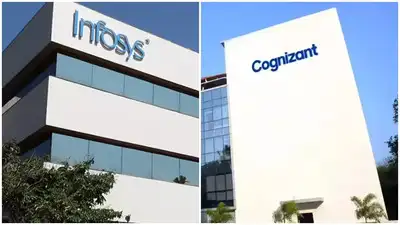Infosys vs Cognizant fight gets uglier! Why are the two big IT firms battling it out in the US? Explained
The Infosys vs Cognizant fight is getting uglier by the day. But why are the two IT sector giants locked in a battle or employees in the US? In an ongoing legal dispute between the two IT companies, Infosys has identified two senior Cognizant officials, Americas President Surya Gummadi and Chief People Officer Kathryn Diaz, as primary figures in what it describes as anti-competitive practices targeting its US healthcare platform, according to an ET report. The allegations were detailed in a joint court submission, highlighting concerns over competitive practices and intellectual property.
Infosys vs Cognizant: What’s the fight about?
- The dispute centres on TriZetto, a healthcare software system that Cognizant purchased in 2014, which allegedly competes with Infosys’s Helix platform.
- According to the report, Infosys has alleged that former Helix leader and current Cognizant CEO Ravi Kumar S, who departed Infosys in October 2022, deliberately postponed Helix’s introduction and subsequently recruited essential personnel after joining Cognizant in January 2023, thereby undermining the platform’s potential success.
- The report says that the dispute began in August 2024 when Cognizant’s TriZetto launched legal proceedings against Infosys in a Texas federal court, claiming that Infosys had improperly utilised confidential information obtained through non-disclosure agreements to develop a rival solution.
- Subsequently, Infosys filed countercharges in January 2025, asserting that Cognizant had deliberately recruited high-ranking staff members and utilised proprietary information to compromise Helix.
- Infosys alleged that these activities were elements of a comprehensive plan to restrict competition within the American
healthcare IT sector , the report adds.
Regarding leadership positions, Infosys’s recent court documents claim that Gummadi and Diaz played significant roles in Cognizant’s strategy to hinder Helix’s market introduction. The company asserted that these senior appointments were strategically planned to diminish Infosys’s market position.Also Read | ‘Maintain work-life balance’: Infosys asks staff not to work overtime; Narayana Murthy had spoken of 70-hour work week ideaAdditionally, Infosys claimed that Ravi Kumar’s previous oversight of Helix provided Cognizant with unwarranted benefits after his transition to the CEO position.
What Cognizant Has Said
Cognizant dismissed Infosys’s counter allegations and sought their dismissal in court, stating that the accusations were unsupported by evidence and contained improper market definitions.“Infosys was caught red-handed misappropriating TriZetto trade secrets that Infosys originally had access to through non-disclosure and access agreements (NDAAs),” Cognizant said in its response, according to the ET report.Additionally, Cognizant stated that Infosys had prevented an audit that would have confirmed the unauthorised access to confidential information.Also Read | It’s a first! Infosys launches cash reward policy for employees who help with hiring; staff to earn Rs 700 per interview
Infosys’ Allegations of Monopoly
Previously, Infosys levelled accusations against Cognizant, claiming it misused its dominant position by curtailing production and raising prices, which allegedly damaged client benefits and stifled market competition.“Monopoly power may be pled directly—through allegations of supra-competitive prices and restricted output—or inferred from the structure and composition of the relevant market,” Infosys stated in its court filing.In its defence, Cognizant contested Infosys’s monopoly claims, stating that holding 65% market share alone does not establish monopolistic control, and criticised Infosys for failing to establish clear market parameters.This dispute emerges as Indian IT companies encounter diminishing growth rates and heightened rivalry in the American market.







Post Comment